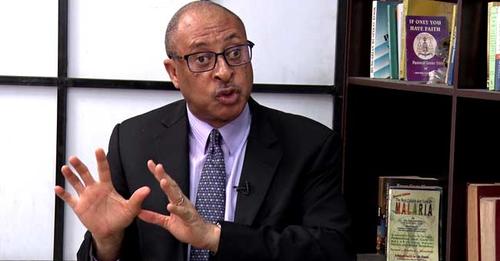Nigeria
Professor Utomi Urges Labour: Include Prudent Governance, Production in Minimum Wage Negotiations

Prominent political economist Prof. Pat Utomi has urged organised labour and the federal government to utilise the upcoming window for minimum wage negotiations in order to steer Nigeria towards frugality and productivity.
In an interview with NAN on Friday in Lagos, Utomi, the founder of the Centre for Values in Leadership (CVL) and the African Democratic Congress’s (ADC) 2007 presidential candidate, offered the counsel.
He was responding to the standoff that labour unions announced on Monday over the increased minimum wage for workers, which resulted in a stalemate between organised labour and the government.
According to Utomi, “workers must demand a sharp reduction in government spending and the allocation of the money saved to infrastructure and production initiatives.”
The goal is to maintain and enhance the output’s value chain by using our latent comparative advantage stemming from robust factor endowments.
Read Also: Okechukwu informs Atiku, Utomi, and others that 2024 is different from 2015 in merger discussions
The government ought to disclose what it is funding, in its own words. Does it compensate those who simply turn up with welfare?
“Hard penalties for misuse of positions, such as corruption and soliciting business from clients while on the job, must be implemented, along with output targets.”
According to him, there should be a set standard for civil society to monitor both parties, along with explicit repercussions.
He asserts that in order to accelerate the shift to production, the government must also come up with audacious plans, much like Operation Feed the Nation (OFN) did in the middle of the 1970s.
He claimed that future changes to the minimum wage would have a significant impact on increases in productivity.
“The template for plugging in productivity gains should now be activated once a proper framework has been established.”
“It shouldn’t come down to the leaders’ feelings or attitudes on either side,” he continued.
NAN notes that all facets of the economy are impacted by organised labor’s announcement on Monday of a statewide, indefinite strike over the increased minimum wage.
In a meeting with labour leaders, the federal government pledged to increase the proposed minimum wage to N60,000. Consequently, organised labour declared on Tuesday that the industrial action would be suspended for one week in order to facilitate further negotiations.
Labour rejected the original proposals of N48,000, N54,000, and N57,000 from the government and the organised private sector.
Additionally, organised labour had suggested N615,000 as the new minimum wage; however, in order to reflect the current state of the economy, it was subsequently lowered to N497,000 and finally to N494,000.
